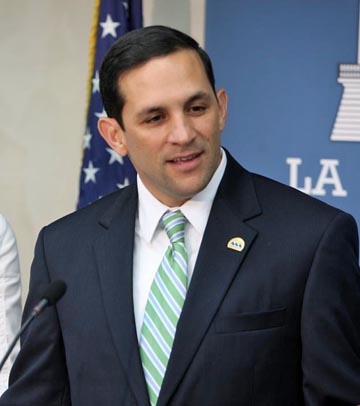Community water supply systems to be outfitted with redundant power

The Puerto Rico Community Foundation has launched the first phase of its project to establish redundant power for the island’s community water supply systems, which will guarantee uninterrupted access to running water in rural communities during natural disasters.
The project entails a $25 million grant, issued through the Federal Emergency Management Agency’s risk mitigation program, with $1.7 million of these funds being authorized to complete the first phase, the nonprofit confirmed.
Redundant power, also known as redundant energy, incorporates the use of alternative energy sources to ensure that an electric system continues to receive power, even when a component of the main system stops working.
The Foundation’s project will install solar systems and emergency generators as backup power sources for water supply systems in the island’s most vulnerable communities.
In Puerto Rico, there are approximately 242 community aqueducts that the Puerto Rico Aqueducts and Sewer Authority (PRASA) do not provide service to. These aqueducts are located in rural, mountainous areas throughout 43 municipalities, and they supply water to about 100,000 people (3% of the island’s residents).
“The Puerto Rico Community Foundation initiated, in March, the first phase of this project for access to clean water using redundant power for vulnerable communities, with the determination to guarantee social justice, equity, and communal prosperity,” said the Foundation’s President, Nelson I. Colón-Tarrats.
“We’re preventing that future emergencies put the continuity of this vital service at risk,” he added.
During the first phase of the project, which is expected to be completed by February 2022, officials will gather information about the communities, their water supply systems, and their environmental conditions.
These findings will allow experts to determine the type of equipment that will be used in construction and create preliminary designs. So far, officials have visited 50 community water supply plants and initiated contact with 160 said aqueducts.
The second phase, set to start in March 2022, includes the installation of high efficiency water pumps that can operate with solar power, electricity from the Puerto Rico Electric Power Authority, or generators. It also includes the installation of solar panels and an emergency generator with a built-in storage tank for gasoline.
This project is one of several initiatives developed through the foundation’s “Agua Pa’ Nosotros” (“Water for Us”) program, which is focused on granting access to clean water in rural communities.
They do so by improving infrastructure, community organization, and administration, as well as ensuring compliance with regulatory agencies. Through this program, 60 aqueducts have received technical assistance while 20 have received donations to improve infrastructure, and two emergency centers have been established.













